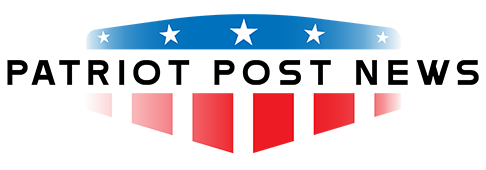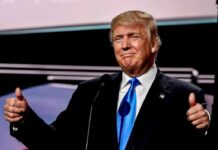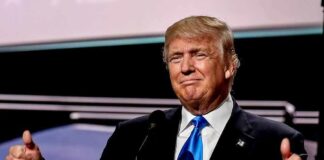
Amazon’s recent proposal to disclose tariff charges to consumers has sparked significant controversy and debate, questioning whether transparency or customer trust should take precedence.
Key Insights
- Amazon considered disclosing tariff costs but later retracted the proposal due to backlash.
- President Trump personally intervened, viewing the move as a “hostile act.”
- Senate Minority Leader Chuck Schumer supports tariff impact transparency.
- Amazon’s potential disclosure raised concerns about passing costs to consumers.
Amazon’s Proposal And Corporate Transparency
Amazon contemplated displaying tariff costs on its products, a move that faced swift criticism. The e-commerce giant later clarified that this consideration was never approved, and the idea was specifically for its Haul store, a subsidiary platform. The notion is intended to align with transparency principles. However, many argued this decision could inadvertently shift the tariff burden onto consumers, sparking subtle but significant debates in global commerce circles.
The potential tariff display faced backlash, notably from political figures such as Karoline Leavitt, who criticized Amazon for what she described as a “hostile and political act.” The clash highlighted the intricate dynamics between corporate responsibility and consumer protection—a delicate balance that the tech giant appears to be navigating cautiously.
Government Reaction And Economic Implications
President Trump directly responded by contacting Amazon founder Jeff Bezos, perceiving the proposal as a direct challenge. The White House deemed the proposal as political hostility, a sentiment echoed by White House press secretary Karoline Leavitt. “This is a hostile and political act by Amazon,” Leavitt said. “Why didn’t Amazon do this when the Biden administration hiked inflation to the highest level in 40 years?” This intervention revealed the sensitive nature of global trade tensions and corporate-public relationships.
The controversy notably impacted Amazon’s stock value, which witnessed a decline of about 1% following the reports. Amid rising product prices, primarily due to U.S. tariffs on Chinese imports, the pressure on Amazon to increase pricing transparency intensifies, raising pertinent questions about business ethics and accountability in contemporary commerce.
Amazon's plan to show the extra cost of goods due to tariffs is a "hostile act," Trump's spokeswoman said. Amazon shares in response: pic.twitter.com/9tN4Fjelpm
— Lisa Abramowicz (@lisaabramowicz1) April 29, 2025
Consumer Impact And Future Trajectory
The consumer response has been varied, as stakeholders closely observe how disclosures influence pricing strategies. Senate Minority Leader Chuck Schumer expressed support for transparency efforts, stating, “People deserve to know the impact tariffs have on their finances.” The debate underscores a significant confrontation between major corporations like Amazon and consumer advocacy groups, with mixed responses from various e-commerce competitors adjusting their strategies to tariffs.
As the story unfolds, the conversation surrounding Amazon’s transparency proposal raises crucial considerations about corporate ethics, consumer attitudes, and the evolving landscape of global commerce under fluctuating international tariffs.
Sources:
- Trump called Jeff Bezos after learning Amazon considered breaking out a tariff charge
- Furious Trump calls Jeff Bezos over ‘politically hostile’ Amazon plan to advertise tariff surcharge on goods
- Amazon denies tariff pricing plan after White House calls it “hostile and political”
- Amazon Reportedly Floats Plan To Show Tariff Price Increases To Shoppers — Karoline Leavitt Calls It ‘Hostile’ Move | The Daily Caller

























